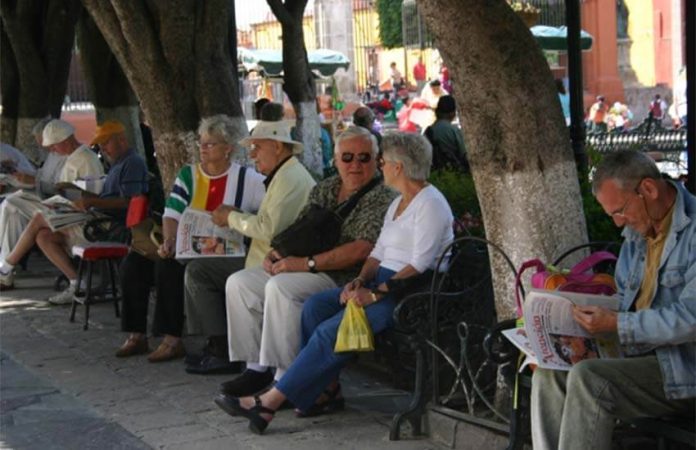A good friend of mine lives in an area of Mexico whose modern iteration is basically a playground for tourists with U.S. dollars to spend (they’d moved there because of her husband’s non-tourism-related job). Having lived in both Xalapa and Mexico City previously, finding herself in that environment was a shock to the system.
It wasn’t simply that everyone automatically spoke to her in English without even trying to address her in Spanish, though that was indeed odd (as was the assumption when they went out that her Mexican husband was some kind of servant or guide to her).
Sticker shock was another one-two punch. As the mother of young children, she had hoped to find someone to help her at home at least a couple of days a week. Then she realized that most in-home helpers were insisting on more money — in dollars, no less — than she herself was able to earn with her online job that required a college degree to perform.
“Mexicans still make good-for-Mexico wages here, but how can they afford anything in this city when everything is priced for Americans?” she frequently asks.
That’s a question I have too.
The answer is, of course, that they live with less general financial stability as well as a lesser ability to enjoy some of the fancier amenities that one’s community has to offer. Sure, there are things that are always out of reach until you hit a certain income level. But what happens to a society when those things are out of reach by 100 meters instead of just 10?
What happens when people far richer than you can ever even hope to suddenly arrive in droves to make your place their own?
In Mexico, this usually plays out as foreigners arriving at a new “it” place, but of course, it’s not the only way that this happens. It’s simply a more complicated way, piling on cultural and linguistic issues atop regular economic ones.
It’s comparable to the phenomena we’re witnessing in the U.S., in which highly paid remote workers move to places like Spokane, Washington, thus rapidly increasing the cost of living in those places, including housing prices.
It’s what many of us have done here. I myself work for “U.S. wages” that would keep me under the poverty line and forever unstable in my home country, but they stretch well enough here that I can afford a comfortable, middle-class lifestyle in Mexico.
Still, the presence of foreigners with foreign currency and (often) the best intentions certainly shuffles things around in the local economy a bit once a certain number arrive.
Some well-off immigrants arrive to truly immerse themselves in the culture and language and live the way locals do; they consciously try to blend in and not make waves. Others come without much intention of integrating at all; they come to make their money stretch further, similar to a move someone might make from San Francisco to Oklahoma City.
Exploring Mexico and integrating themselves are priorities much further down the list.
Immigrants everywhere face this tension: to what extent do you try to simply blend in with your new environment and to what extent do you try to preserve (and perhaps impose) the things and values you’re used to?
Tensions regarding this question have been increasing for a while now — please take the Mexico News Daily poll if you haven’t yet! — many of them centering around the ethics of money and what responsibility we as generally rich immigrants have to our host communities.
I know some will recoil at the thought of being considered rich, but an income of US $2,700 a month or more puts you in the top 10% of earners in Mexico. Whether that allows you to live like a king or not depends on where you live.
Two recent fights in a local group that my tourist-city friend told me about were about pay for domestic help and tipping.
On one side were well-meaning foreigners who insisted that if one could afford to pay the same price as in the United States for comparable service and didn’t, it was stingy and criminal, even if that price was more than the going rate — end of story.
On the other side were other well-meaning foreigners, most of whom had integrated to some degree into their Mexican communities. Those who lived in touristy areas often pointed out that when such high payments came to be expected in a community, then the average citizen was priced out of accessing those services — kind of like my friend looking for domestic help.
The battles were fierce, and plenty of insults and ugly words were exchanged.
Though I wasn’t part of it, it’s something that I think about a lot: what’s my responsibility to pay a little more if I can? I already do, I suppose, although not to the extremes promoted in that conversation.
Whether we want to affect a local economy or not isn’t the point; we simply do.
San Franciscans who move to a new, cheaper city aren’t trying to raise the cost of living of their new communities; it just happens when there’s more money to be spent.
So where does that leave us? Is there a way to be generous without drastically changing a local economy? One of us doesn’t make that much of a difference. But what happens when all our little drops become a wave that pushes other people further from accessing what we ourselves enjoy?
Sarah DeVries is a writer and translator based in Xalapa, Veracruz. She can be reached through her website, sdevrieswritingandtranslating.com and her Patreon page.
